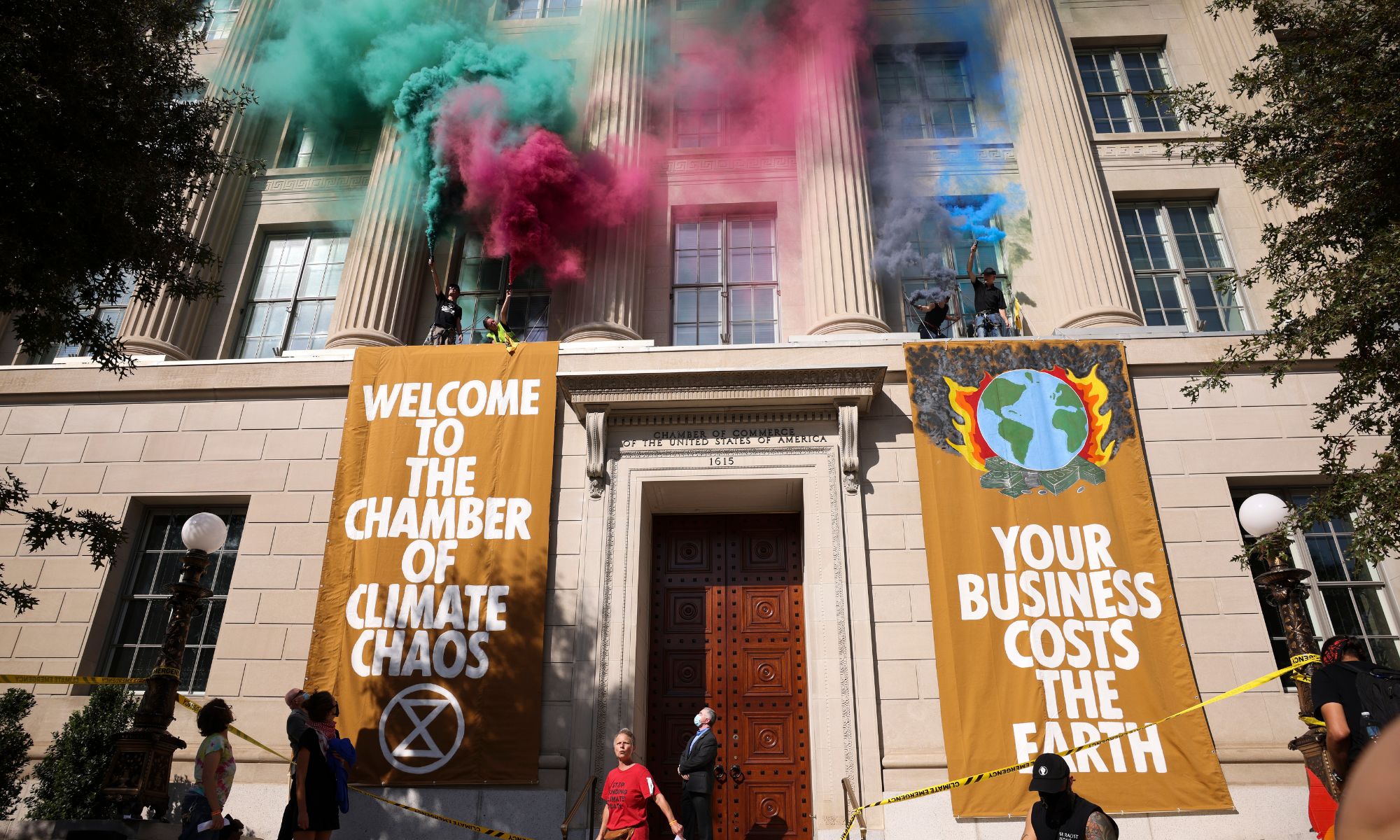It's our last chance to limit global warming before climate change damage becomes irreversible - 6 need-to-knows from the "final warning" IPCC report
Scientists have a clear message: act now, before it's too late

In sustainability news this week, scientists have delivered a "final warning" on climate change in a damning 1,000-page report.
The Intergovernmental Panel on Climate Change, or IPCC, delivered the last instalment of a comprehensive six-part review on Monday.
Led by the world's leading climate scientists, it took eight years to compile and follows last year's 2022 IPCC report. While the research in the latest report is extensive, the message is simple: act now, before it's too late.
On the report, UN secretary general António Guterres said: “This report is a clarion call to massively fast-track climate efforts by every country and every sector and on every timeframe. Our world needs climate action on all fronts: everything, everywhere, all at once.”
The IPCC has been publishing warning reports since 1990, but this final instalment is the most significant. Why? Well, experts warn that it's the last report that can feasibly be delivered before we pass the 1.5C Paris Agreement global warming cap.
While there's no denying the magnitude of this report - nor the scale of the work that needs to be done to reverse the damage we've already caused to the planet - there are some standout takeaways. Rather than feel overwhelmed by the jargon, let me break down the key need-to-knows for you.
IPCC report 2023: "A how-to guide to defuse the climate timebomb and a survival guide for humanity"
While you might think this is just another environmental report, Monday's final instalment of the IPCC report - called the "synthesis report" - is far from that. As above, it's hugely significant as experts stress that it's the last report that will be delivered while we have the chance of limiting global warming below 1.5C. Go above that, and they warn that climate damage will quickly become irreversible.
Marie Claire Newsletter
Celebrity news, beauty, fashion advice, and fascinating features, delivered straight to your inbox!
Kaisa Kosonen, a climate expert at Greenpeace International, said: “This report is definitely a final warning on 1.5C. If governments just stay on their current policies, the remaining carbon budget will be used up before the next IPCC report [due in 2030].”
We're seeing more extreme weather than ever, like wildfires and floods in Pakistan, and “increasingly irreversible losses” highlighted in shows like David Attenborough's Wild Isles. For key action points from the report - keep scrolling.
A post shared by United Nations (@unitednations)
A photo posted by on
1. More than 3bn people are already highly vulnerable
And this number only looks set to increase as climate change accelerates.
The report shared that a staggering three billion people are living in "highly vulnerable" areas that may not be able to adapt to the pending climate crisis.
Detailing how areas are already stretched to their limit with adapting to such drastic climate changes, the report shared that freak weather driven by global warming is also “increasingly driving displacement” of individuals across Africa, Asia, and more.
2. The 1.5C target will likely be exceeded by 2030
Sadly, one overarching theme of the report was of stark reality - that the 1.5C Paris Agreement global warming cap will most likely be exceeded by 2030, not 2050 as initially predicted.
Currently, global warming has risen by 1.1C in 150 years, and now experts predict a much faster rate of acceleration.
"It has always been clear in the IPCC and in climate science, that it's not very likely that we always will stay below 1.5C," said Dr Oliver Geden, an expert from the German Institute for International and Security Affairs and one of the writers of the report.
The focus now, they stress, should be cooling the earth's temperature after we surpass that temperature, reaching Net Zero - that is, ensuring the number of greenhouse gas emissions in the atmosphere doesn't increase - and focusing on innovative ways to do so.
While "overshooting", as they call it, doesn't come without risks, the report highlights this as the most realistic route to saving the planet that we currently have.
A post shared by Farhana Yamin (@farhanayamin)
A photo posted by on
3. Renewable energy is the future
It's important to note here that the IPCC report doesn't state this in black and white, yet it places particular emphasis on how beneficial renewable forms of energy - think wind and solar energy - can be for reducing our global carbon footprint.
"The message in terms of urgency, I think, is to stop burning fossil fuels as fast as humanly possible," said Dr Friederike Otto, a scientist who helped write the report told the BBC.
"It is not because we are lacking some important piece of technology or some important knowledge. It is because so far, the sense of urgency has been lacking in the places where the important decisions are made."
4. Small changes really can make a difference
Here at Marie Claire UK, we've always encouraged you to start somewhere with sustainable living - that is, taking the small steps every day to do your bit. While the report paints a stark picture, it does stress that these small actions make all the difference. It's not just about policy change, as important as that is.
"We could cut 40 to 70% of projected 2050 emissions with end-use measures," Kaisa Kosonen from Greenpeace shared with the BBC.
This spans things like adopting a vegan diet, lowering your carbon footprint by avoiding flights and building more walkable and bikeable cities.
While the onus is on us to do our bit, the report does encourage governments to make lower carbon choices more easily accessible and affordable, too.
A photo posted by on
5. How we act now will have an impact forever
You need only looks at the melting ice caps to see how quickly change is happening, with the report stressing that if we continue to warm the planet to anywhere between 2 and 3C, parts of the globe, such as the Greenland and West Antarctic ice sheets, will be lost "almost completely and irreversibly".
How we act now - that is, in the next seven or so years - will have a lasting and profound impact on the health of our planet. The report urges governments to reach Net Zero by 2050 as a matter of urgency.
"Our climate system, but also our social systems and our ecosystems, show us that it's urgent," concludes Dr Otto.
6. There is hope - if we act now
This particular IPCC report has the most power to bring about tangible change as it was discussed with global governing bodies pre-publishing. This gives scientists and governments the opportunity to work together and use stat-based scientific evidence as a guide.
What is clear from the report is that there is hope - but we must act now and play our part.
Hoesung Lee, the chair of the IPCC, said: “This synthesis report underscores the urgency of taking more ambitious action and shows that, if we act now, we can still secure a livable sustainable future for all.”
Guterres agreed, urging governments to do their part - and fast. His pointers spanned switching to renewable energy, investing in low-carbon technology, and aiming to reach Net Zero “as close as possible to 2040," rather than the originally agreed 2050.
“The climate timebomb is ticking," he warned. "But the report is a how-to guide to defuse the climate timebomb. It is a survival guide for humanity. As it shows, the 1.5C limit is achievable.”
"We can still change the world to make it a better place for all of us," concludes Dr Otto.

Ally Head is Marie Claire UK's Senior Health and Sustainability Editor, nine-time marathoner, and Boston Qualifying runner. Day-to-day, she heads up all strategy for her pillars, working across commissioning, features, and e-commerce, reporting on the latest health updates, writing the must-read wellness content, and rounding up the genuinely sustainable and squat-proof gym leggings worth *adding to basket*. She also spearheads the brand's annual Women in Sport covers, interviewing and shooting the likes of Mary Earps, Millie Bright, Daryll Neita, and Lavaia Nielsen. She's won a BSME for her sustainability work, regularly hosts panels and presents for events like the Sustainability Awards, and is a stickler for a strong stat, too, seeing over nine million total impressions on the January 2023 Wellness Issue she oversaw. Follow Ally on Instagram for more or get in touch.
-
 Penn Badgley and Blake Lively kept their breakup a secret from the Gossip Girl cast and crew - here's what we know about their former relationship
Penn Badgley and Blake Lively kept their breakup a secret from the Gossip Girl cast and crew - here's what we know about their former relationshipBy Jenny Proudfoot
-
 This iconic rose perfume is a compliment magnet—it makes me feel ‘put together’ after just one spritz
This iconic rose perfume is a compliment magnet—it makes me feel ‘put together’ after just one spritzGrown-up and elegant, yet not at all dated.
By Denise Primbet
-
 Spring has finally sprung - 6 best outdoor workouts that are totally free and boost both body and mind
Spring has finally sprung - 6 best outdoor workouts that are totally free and boost both body and mindSoak in the nature and boost Vitamin D *and* endorphins.
By Anna Bartter